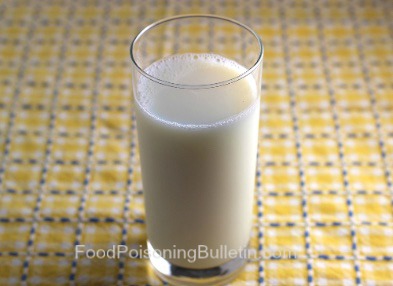Raw goat milk produced by Claravale Farms in San Benito County has been linked to a Campylobacter outbreak that has sickened three small children, hospitalizing one of them. The outbreak follows to previous recalls for Campylobacter in raw dairy products from the farm, one in April 2105 and one in April 2012.
 The farm’s website does not mention the current outbreak. But it does have news updates about the April recall. One of them states: “We have been cleared by the CDFA to sell milk again and are now back in the stores and farmers markets. Our problem turned out to be a single cow with Campylobacter living in the milk in her udder… So what these results mean is that the problem was in no way connected to our milking or processing procedures or our cleanliness standards or any other dairy management issue.”
The farm’s website does not mention the current outbreak. But it does have news updates about the April recall. One of them states: “We have been cleared by the CDFA to sell milk again and are now back in the stores and farmers markets. Our problem turned out to be a single cow with Campylobacter living in the milk in her udder… So what these results mean is that the problem was in no way connected to our milking or processing procedures or our cleanliness standards or any other dairy management issue.”
Public health officials are often the ones to make the point that unpasteurized milk can harbor dangerous bacteria no matter how clean the barn is or what processing procedures were used. But here it is from a raw milk farmer, sometimes animals that don’t look sick can have infections and produce milk that isn’t safe to drink.
Children are disproportionately affected by raw milk outbreaks and this one is no exception. Symptoms of an infection include diarrhea, abdominal cramps, and fever. For some people, the infections can become life-threatening. Others may develop long-term complications such as reactive arthritis which causes joint pain and swelling after infection or Guillain-Barre Syndrome, a condition that causes weakness and paralysis which can occur several weeks after the initial illness.
Raw milk can harbor many pathogens, ranging from E. coli O157:H7 to Listeria monocytogenes to Brucella and Salmonella. And there is no way to tell if the milk contains pathogenic bacteria by looking at or tasting the milk.




